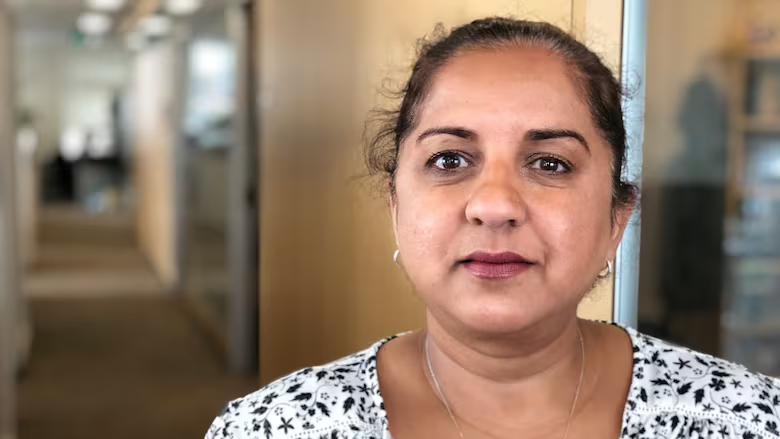Common respiratory virus up in N.W.T., says territory's top doctor
Cases of respiratory syncytial virus up 16% compared to 5-year average for N.W.T. residents

The number of Northwest Territories residents diagnosed with respiratory syncytial virus (RSV) — a common and highly contagious respiratory illness often affecting children — is up this year, according to the territory's top doctor.
Dr. Kami Kandola, chief public health officer of the N.W.T., says there have been 56 confirmed cases of RSV in the N.W.T. from late fall to early spring this year, peaking in early March. That's a 16 per cent increase compared to the territory's five-year average.
"Winter has been longer [this year] and so more kids are inside," Kandola said. "RSV is a virus that is highly contagious, so it makes sense to see more cases when we have had a longer winter."
The virus spreads like the common cold through droplets containing the virus when an infected person coughs or sneezes or by touching contaminated surfaces like counters and doorknobs.
"RSV is a mild viral illness," describes Kandola.
Children can die from RSV. Fortunately in the N.W.T. we haven't had a death in many, many years.- Dr. Kami Kandola, chief public health officer
The virus causes infections in the lungs and respiratory tract. Symptoms include stuffy or runny nose, mild headache, cough, difficulty breathing and fever. Smoking can worsen symptoms.
Most children have had an RSV infection by the time they are two, said Kandola. But she said younger or premature children, and children with lung disease, chronic illnesses or whose immune systems are compromised "can get a lot sicker."
"Children can die from RSV. Fortunately in the N.W.T. we haven't had a death in many, many years," she said.
The office of the N.W.T.'s chief public health officer tracks the number of cases annually.
Every year, Kandola says high-risk children, like premature babies, are offered antibody injections during the RSV season. Twenty-one children are in the program this year.
But for most people, Kandola says hand washing, keeping sick people at home, avoiding smoking and second-hand smoke and breastfeeding infants are the best ways to prevent a serious RSV infection.